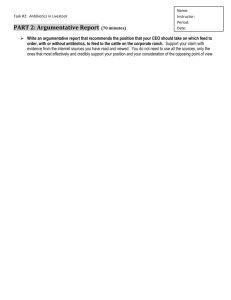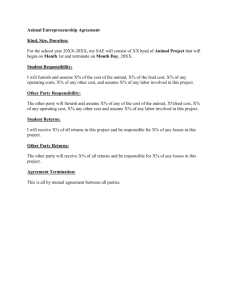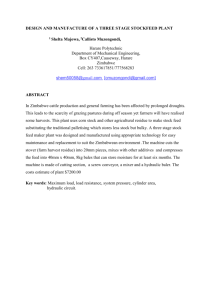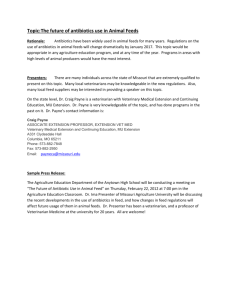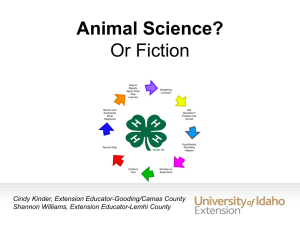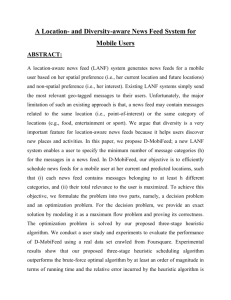The Animal Feed Division (AFD) hosted a Veterinary Student from
advertisement
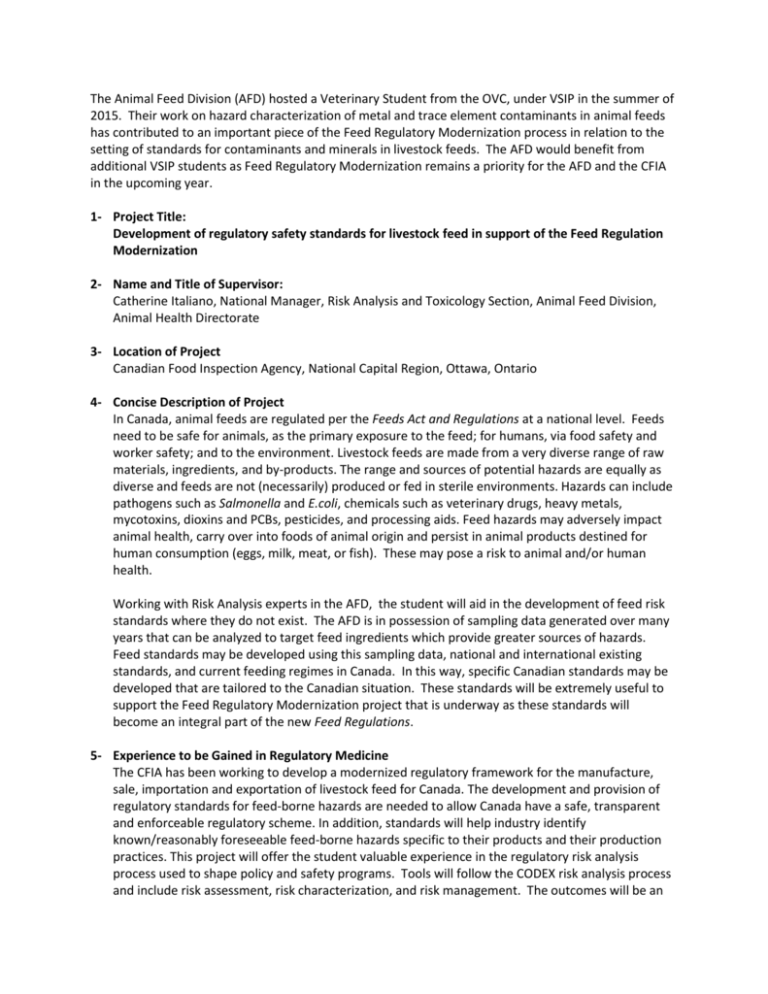
The Animal Feed Division (AFD) hosted a Veterinary Student from the OVC, under VSIP in the summer of 2015. Their work on hazard characterization of metal and trace element contaminants in animal feeds has contributed to an important piece of the Feed Regulatory Modernization process in relation to the setting of standards for contaminants and minerals in livestock feeds. The AFD would benefit from additional VSIP students as Feed Regulatory Modernization remains a priority for the AFD and the CFIA in the upcoming year. 1- Project Title: Development of regulatory safety standards for livestock feed in support of the Feed Regulation Modernization 2- Name and Title of Supervisor: Catherine Italiano, National Manager, Risk Analysis and Toxicology Section, Animal Feed Division, Animal Health Directorate 3- Location of Project Canadian Food Inspection Agency, National Capital Region, Ottawa, Ontario 4- Concise Description of Project In Canada, animal feeds are regulated per the Feeds Act and Regulations at a national level. Feeds need to be safe for animals, as the primary exposure to the feed; for humans, via food safety and worker safety; and to the environment. Livestock feeds are made from a very diverse range of raw materials, ingredients, and by-products. The range and sources of potential hazards are equally as diverse and feeds are not (necessarily) produced or fed in sterile environments. Hazards can include pathogens such as Salmonella and E.coli, chemicals such as veterinary drugs, heavy metals, mycotoxins, dioxins and PCBs, pesticides, and processing aids. Feed hazards may adversely impact animal health, carry over into foods of animal origin and persist in animal products destined for human consumption (eggs, milk, meat, or fish). These may pose a risk to animal and/or human health. Working with Risk Analysis experts in the AFD, the student will aid in the development of feed risk standards where they do not exist. The AFD is in possession of sampling data generated over many years that can be analyzed to target feed ingredients which provide greater sources of hazards. Feed standards may be developed using this sampling data, national and international existing standards, and current feeding regimes in Canada. In this way, specific Canadian standards may be developed that are tailored to the Canadian situation. These standards will be extremely useful to support the Feed Regulatory Modernization project that is underway as these standards will become an integral part of the new Feed Regulations. 5- Experience to be Gained in Regulatory Medicine The CFIA has been working to develop a modernized regulatory framework for the manufacture, sale, importation and exportation of livestock feed for Canada. The development and provision of regulatory standards for feed-borne hazards are needed to allow Canada have a safe, transparent and enforceable regulatory scheme. In addition, standards will help industry identify known/reasonably foreseeable feed-borne hazards specific to their products and their production practices. This project will offer the student valuable experience in the regulatory risk analysis process used to shape policy and safety programs. Tools will follow the CODEX risk analysis process and include risk assessment, risk characterization, and risk management. The outcomes will be an integral part of the national Feed Regulations and will serve to enhance the production of safe feed and safe food in Canada. 6- Deliverables The deliverables are the establishment of feed regulatory standards which will be an integral part of the national Feed Regulations and will serve to enhance the production of safe feed and safe food in Canada. 7- Project Timeline - Familiarization with feed regulations and existing standards. - Prioritization of identified hazards - Targeted analysis of historical sampling data to identify trends of prioritized hazards - Risk Assessment of identified hazards - Exposure assessment of said hazards - Risk Characterization based on review of relevant research from the public research regarding prioritized hazards - Establishment of standards for both total diets and specified feed ingredients 8- Duration of Project or Other Date or Time Constraints Ideally the student will be available for the complete summer; however, we could accommodate the student’s timelines. As this is a priority project for the AFD, as soon as the student is available will be welcomed.
